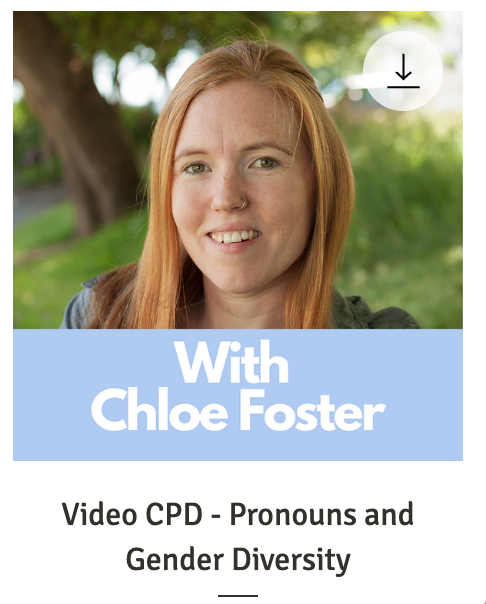Trans clients? 4 Things you need To know as a counsellor
- Chloe Foster
- Nov 4, 2020
- 3 min read
Updated: Nov 17, 2022
As an LGBTQ counsellor and trans ally, I've dedicated this blog to share some info/resources with fellow counsellors who would like to work more with trans clients.
Today I list, 4 things you need to know when counselling trans clients.
1 - Trans history, laws and societal attitudes
Remember, the UK began to have laws protecting trans people only in recent years.
A few examples are below, there is still a long way to go.
Transgender people were not protected in UK equality law until 2010
‘Equal’ Marriage in 2015 still excludes non-binary people
Transgender health issues were classified by WHO as mental illness until 2019

Learn more about trans history.
Read the book Trans Britain: Our Journey from the Shadows edited by Trans activist Christine Burns.
Learn why non-binary people can't get married in Fox and Owl's free documentary:
I Am They: A non-binary transgender LOVE story
In the last year alone there were countless transphobic news stories. This can affect society's attitudes, which in turn, piles onto our trans clients' mental health, making accessing support such as counselling even harder.
The organisation All About Trans was set up to positively change how the media understands and portrays transgender people.
2 - Client fear
LGBTQ clients, particularly those who are transgender are quite rightly very wary of professionals.
It is quite likely your clients will be on edge and worried about how you might treat them in the counselling room.
For this reason it's important you do all you can to alleviate those fears and create a safe space for your clients to trust you.
When working with trans clients please bear in mind these worrying stats ...

Half of trans people (48 per cent) have experienced inappropriate curiosity from healthcare staff because they’re trans.
One in five trans people (20 per cent) have been pressured to access services to suppress their gender identity when accessing healthcare services.
Stats from 2018 Stonewall Report ‘LGBT in Britain’
3 - Terminology

Counsellors often say to me that they don’t know all the words. They are scared to work with a trans client in case they say something that offends.
Counsellors also worry that they might not understand the words a client might use to describe their identity.
And I say ...
It’s not about swallowing a dictionary of words!
We can’t know all the words, as terminology shifts and changes through time.
However, I do think it’s important to learn key words that are commonly used when talking about gender in the therapy room. Your client does not want to spend time educating you, nor is it their responsibility.
As a counsellor it's your job to learn this. And I'm excited to help you with this. You can find some helpful places looking at my LGBTQ+ training for professionals page on my website here.
Don't wait until you get an enquiry from a client saying they are trans. Remember – you may already be working with a trans client, but they haven't told you.
4 - Pronouns

Pronouns such as she, he and they are very important when we speak about people in the third person.
Working as a counsellor, I’m passionate about helping other counsellors realise the importance of asking all clients their pronouns, not just those who we think might be trans.
I write more about this in my blog 'Pronouns – what's the big fuss?' and offer a Pronouns and Gender Diversity video CPD for professionals here.
For those of you active on social media in counsellor circles you may have seen my popular posts around International Pronouns Day in October, where I encouraged counsellors to add their pronouns to their email signature. I wonder if you added your pronouns as a result?
Here's my example of how I add my pronouns to my email signature.

I hope this helps you do one small thing. This helps show you understand the importance of sharing your pronouns. It also invites all clients to share their pronouns.
What can I do now?
This Transgender Awareness Week I hope you'll take action by helping educate the counselling community about trans people. You could start with sharing this blog with your counsellor friends.
Transgender Awareness Week is a week-long celebration (second week of November) leading up to Transgender Day of Remembrance (TDOR) on 20 November, which remembers those who have been murdered as a result of transphobia.
Want to learn more?
Check out my Pronouns and Gender Diversity video CPD here.
This timesaving, clear and concise training is for you if you are confused about pronouns, scared of making mistake and wanting to make your practice more inclusive.


Comments